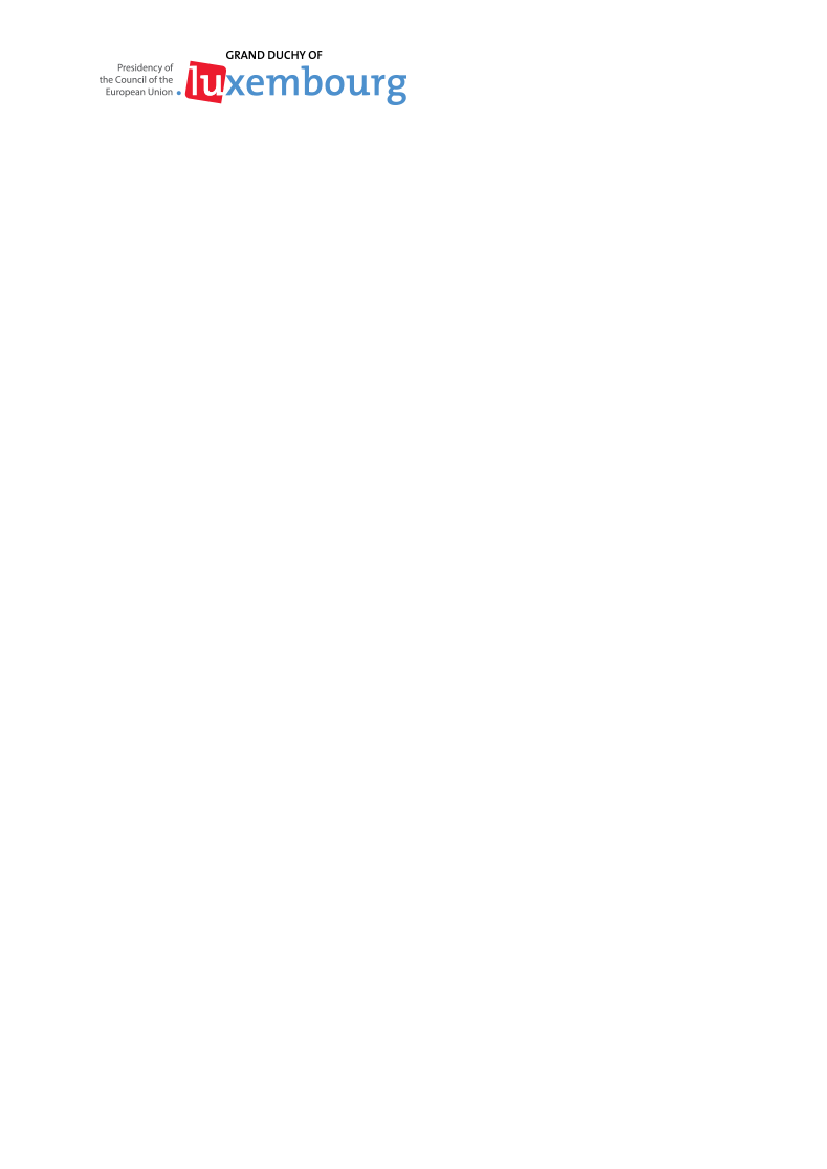
1 December 2015
Contribution of the LIV COSAC
Luxembourg, 30 November – 1 December 2015
COSAC strongly condemns the barbaric attacks perpetrated on 13 November 2015 in Paris
and shares the grief of the families of the victims and of the French people. COSAC calls for
a united Europe in the fight against terrorism.
COSAC reminds national Parliaments that their enhanced role in the decision-making at EU
level, should include supporting the EU institutions in their swift action against terror.
1.
1.1.
European Agenda on Migration
COSAC reaffirms the importance of providing an urgent solution based on solidarity
and fair sharing of responsibility, as stated in Article 80 of the Treaty on the
Functioning of the European Union (TFEU) to the tragic humanitarian situation of the
refugee crisis and of offering assistance to partner countries to address the root
causes of migration. COSAC welcomes the increased funding for the most affected
Member States and for Frontex, EASO and Europol.
COSAC considers that the adoption of an effective, humanitarian and safe European
migration policy has become one of the most urgent objectives of the European
Union and supports the Member States to continue working on the implementation of
the European agenda presented by the European Commission.
COSAC underlines that in the European Union, an area of open borders and freedom
of movement, Member States need to have a joint approach to guarantee high
standards of protection for refugees by establishing a renewed Common European
Asylum System and a more effective EU return policy, making full use among others
of the common Return Handbook and an EU Action Plan on Return.
COSAC recognises the need to exercise solidarity in relation with Member States
facing an unprecedented flow of refugees and migrants and welcomes in this context
the operational measures taken by the European Commission and the Member
States allowing first relocations of asylum seekers to take place, and the resettlement
of migrants from third countries to EU Member States. Furthermore, COSAC reminds
that coordination is needed with the countries in the European Economic Area and
Switzerland, so that the resources, experience and opportunities may be more
efficiently used; COSAC calls on Member States, to step up their efforts and fulfil at a
faster pace their commitment according to their binding share.
COSAC acknowledges that a majority of Parliaments welcomes the European
Commission’s proposal for a permanent relocation mechanism of refugees; looks
forward to the proposal for a permanent resettlement scheme and to the reform of the
Dublin Regulation. At the same time, COSAC acknowledges several Parliaments’
reservations regarding these measures proposed by the European Commission.
1.2.
1.3.
1.4.
1.5.
1